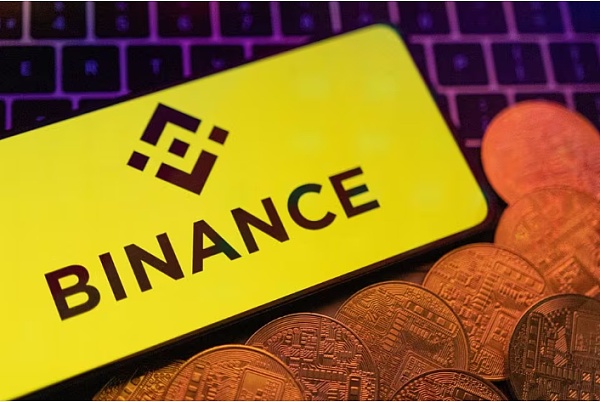This week, the battle between Binance and the U.S. Securities and Exchange Commission officially begins.
In the latest court hearing, lawyers from the two institutions started a fierce "fight". This lawsuit may not only involve sky-high fines, but may even affect U.S. securities Regarding the jurisdiction of regulatory agencies over the cryptocurrency industry, Koala Finance will make an in-depth analysis in this article.
Binance VS SEC Incident Summary
In November 2023, Binance agreed to pay $4.3 billion to settle with the U.S. Department of Justice and the U.S. Commodity Futures Trading Commission for illegal financial violations. The company’s then CEO Changpeng Zhao admitted to violating U.S. anti-money laundering laws and agreed to resign as chief executive. executive positions, but their case with the SEC remains pending.
The U.S. Securities and Exchange Commission accused Binance, Changpeng Zhao and the exchange's U.S. affiliate of artificially inflating its trading volume, diverting customer funds, and failing to restrict use by U.S. customers its platform and mislead investors about its market regulatory controls. The regulator also accused Binance of illegally facilitating trading in several crypto tokens that the U.S. Securities and Exchange Commission considers unregistered securities. To put it simply, the verdict of the lawsuit between the U.S. Securities and Exchange Commission and Binance will largely clarify whether the crypto-assets traded on the Binance trading platform are securities regulated by the U.S. Securities and Exchange Commission, so it will have a great impact on the entire cryptocurrency industry. The impact is self-evident.
On January 22, local time in the United States, lawyer Matthew Gregory attended a court hearing on behalf of Binance. He made it clear that the U.S. Securities and Exchange Commission has not yet made clear regulations on cryptocurrency. regulations, he said: “So far, the SEC has been saying two things when it comes to cryptocurrencies... They’re telling crypto projects to come in and register, while simultaneously closing the door with the other hand and There is no feasible way to prevent anyone from doing this." Therefore, the judge presiding over the case, Amy Berman Jackson, was asked to dismiss the SEC's charges against him and related parties.
SEC lawyers countered that a test, implicitly the Howey test, was designed to be applied to financial products in a flexible manner and to distinguish between securities and non- Securities “have no clear boundaries.”

The judge questioned both Binance and the US SEC
After lawyers from Binance and the US Securities and Exchange Commission respectively stated their opinions, Judge Amy Berman Jackson appeared highly critical of Binance's arguments and dismissed an argument by Binance's lawyers that relied on the material questions doctrine, arguing that the SEC cannot without congressional approval Take certain regulatory actions.
In addition, "Fortune" reporter Leo Schwartz revealed that Judge Amy Berman Jackson ruled against Binance regarding the securities issuance must It resisted the claims involving contracts and responded that the Howey test could be broader in scope, even citing the example that baseball cards are not generally considered securities, with some similarities to the product currently being discussed. Cryptocurrency attorney Jeremy Hogan said the judge also criticized Binance’s fair notice defense, an argument that suggests the SEC should have informed Binance that it committed a securities violation before filing charges.
On the other hand, Judge Amy Berman Jackson also disagreed with some of the SEC's views. In an initial set of charges, the SEC held that Binance’s own cryptocurrencies, including BNB and its largely defunct Binance USD stablecoin BUSD, were securities. The SEC also considers several other tokens that Binance handles but does not issue to be securities, including but not limited to Cardano (ADA), Polygon (MATIC), and Solana (SOL). Judge Amy Berman Jackson disagreed, explaining:
"If these tokens are clearly securities, then in the past Where has the SEC been all these years? Doesn't it matter why the SEC took the opposite position or offered no conditions for years?"
What will be the consequences if Binance loses the US SEC lawsuit?
How the SEC will argue its case in future litigation remains to be seen, but for now, Binance wins this one The lawsuit is not easy.
First, the SEC's Howey test clearly states that regulators do not need to contact parties to alert them of possible violations; second, Judge Amy Berman Jackson expressed concerns about several third-party tokens that Binance manages but is not responsible for issuing, claiming to be "concerned about the potential for discovery and numerous trials" for each designated asset, noting that the issuer is not currently a party to the litigation.
Frankly speaking, if Binance loses this lawsuit, they will probably no longer be able to provide services to US users and will also face huge fines. So, does this mean that Binance has been sentenced to death? No! According to information disclosed on the official website of the Hong Kong Securities Regulatory Commission, a virtual asset trading platform called "HKVAEX" has officially submitted a license application on January 4, and the company behind this trading platform is likely to be Binance.
The website of the HKVAEX trading platform states that they are using Binance servers to obtain content and will also "obtain resources from global exchanges like Binance". There are similarities between the companies' shared code and nearly identical terms of use templates, or an indication that the two companies may also share legal resources. Binance’s main website, Binance.com, and HKVAEX’s website, HKVAEX.hk, have many similarities in design, including shared code and the use of Binance’s content delivery domain.
In the context of the US Securities and Exchange Commission's lawsuit against Binance and Changpeng Zhao, the world's largest cryptocurrency trading platform is likely to face increasing challenges in the future. Large legal review and liquidity issues, at the same time, Hong Kong is vigorously promoting the development of virtual assets and Web3 markets, and has implemented a new licensing plan aimed at attracting industry participants by providing legal stability, so settling in Hong Kong for currency pairing An Li is undoubtedly a relatively better choice.

It is worth mentioning that last month, a federal judge rejected the travel permit application of Binance founder Changpeng Zhao, who wanted to travel to his home in the United Arab Emirates to deal with the "hospitalization and surgery" of relatives. . A new court filing shows that despite Changpeng Zhao offering to use his Binance stake as security for his return to the United States, a judge rejected his request. The document also shows that Changpeng Zhao’s lawyers pointed out in a letter to Judge Richard Jones on December 22, 2023 that based on Binance’s last round of financing two years ago, the value of the equity proposed as security was as high as $4.5 billion. Court records show that Richard Jones held a closed hearing on the request on December 29 and rejected Changpeng Zhao's travel request.
 Bernice
Bernice
 Bernice
Bernice Xu Lin
Xu Lin JinseFinance
JinseFinance Sanya
Sanya Edmund
Edmund Coinlive
Coinlive  decrypt
decrypt decrypt
decrypt Others
Others Cryptoknowmics
Cryptoknowmics